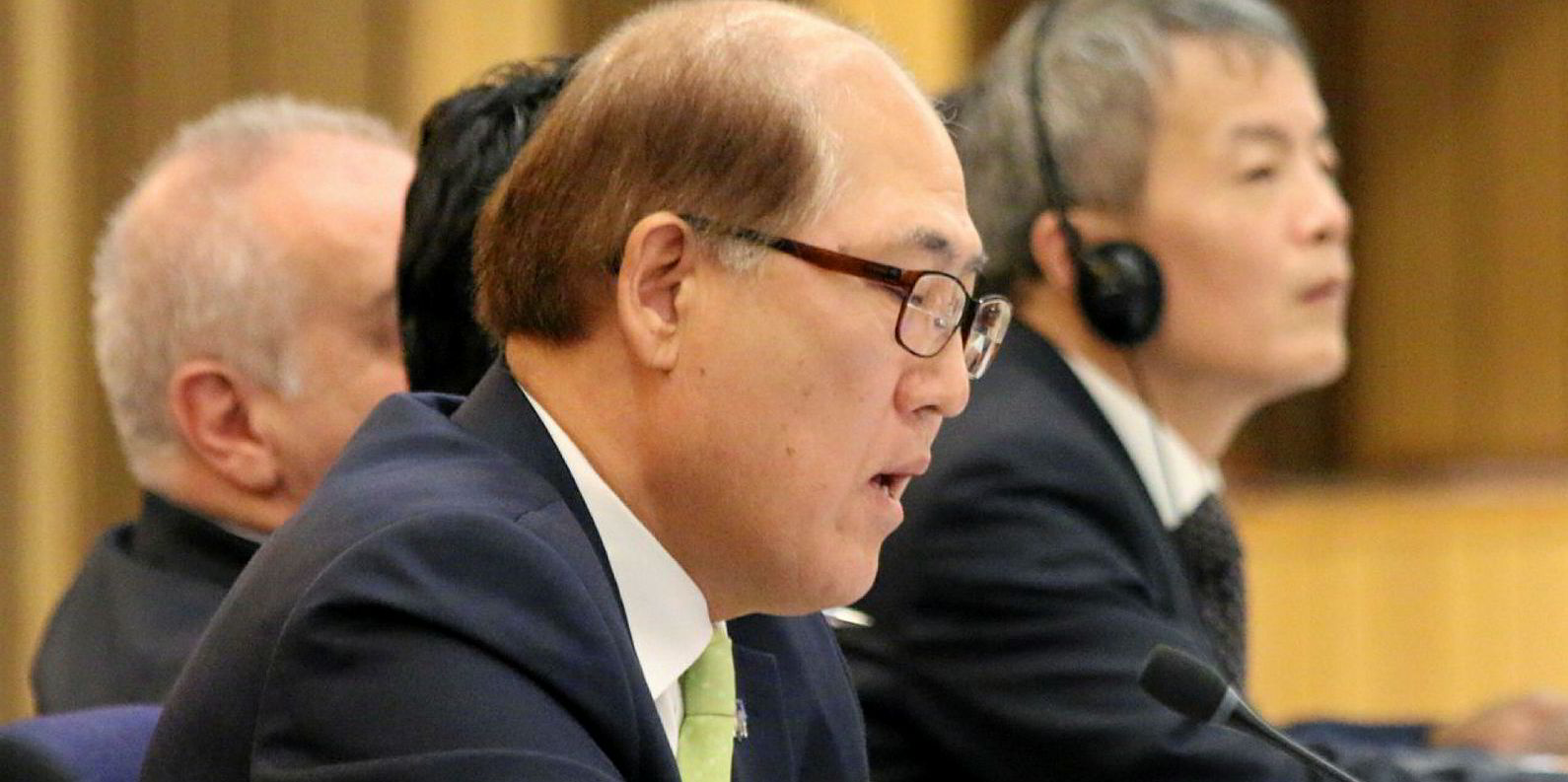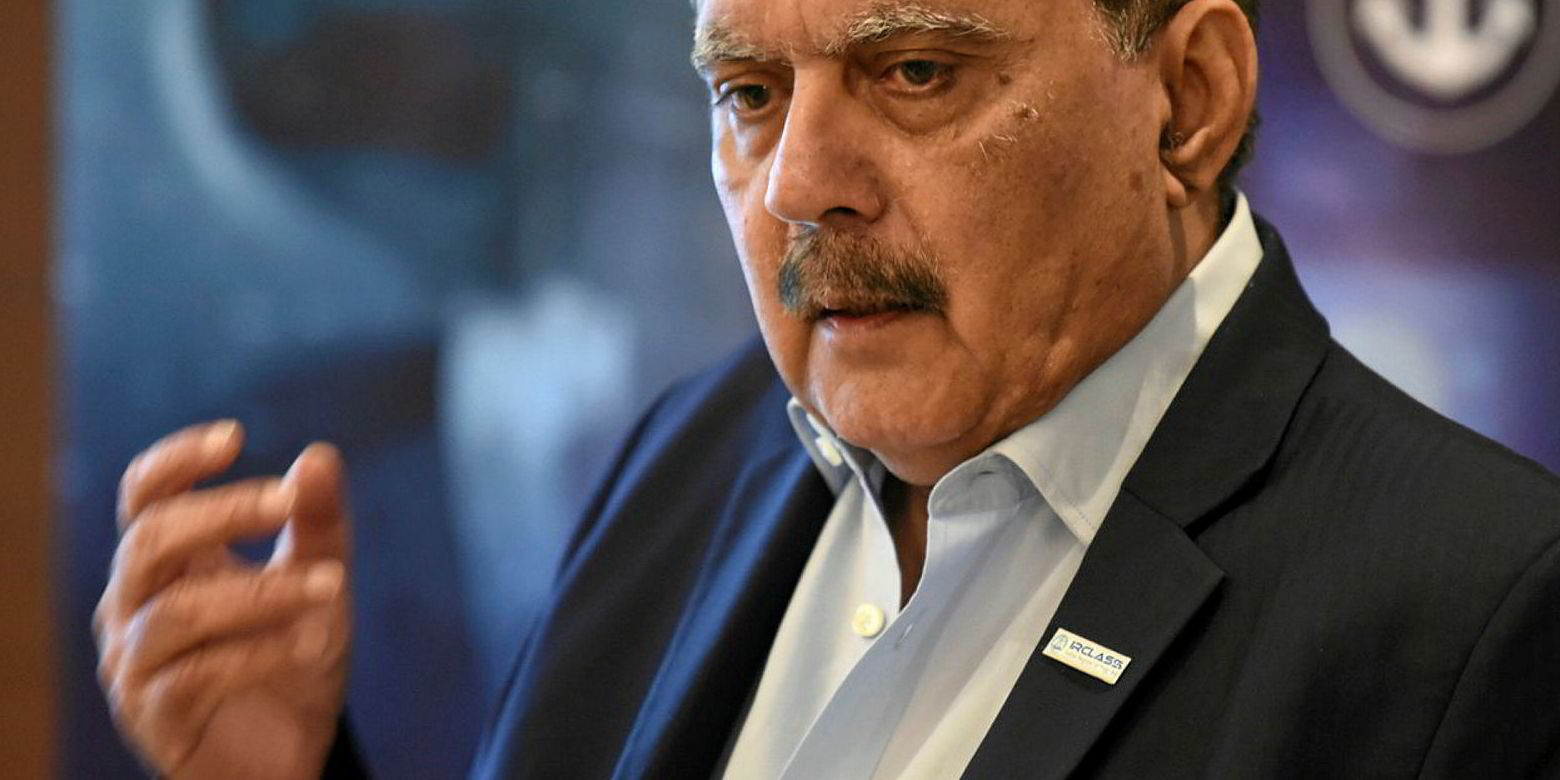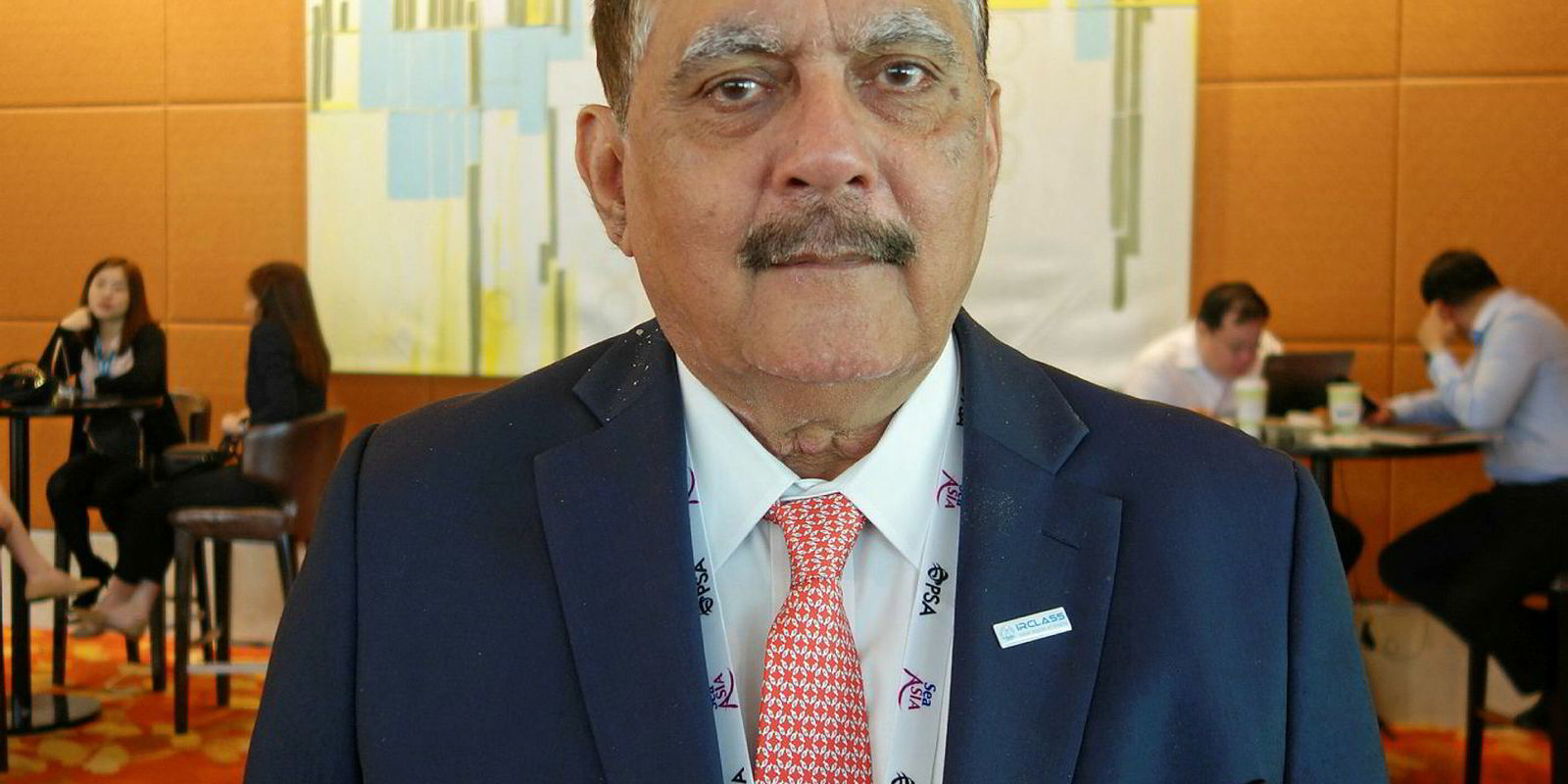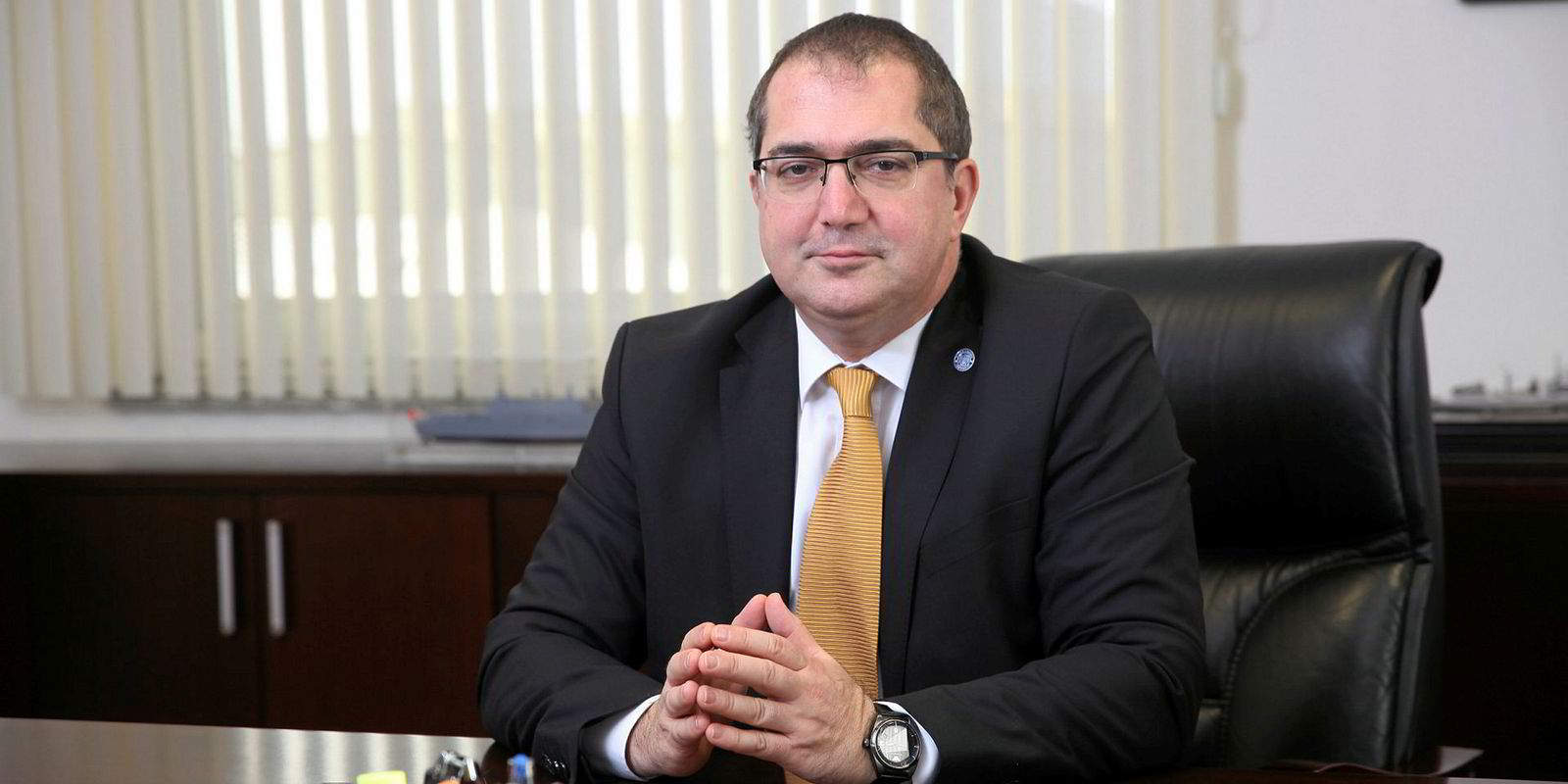The International Association of Classification Societies (IACS) marked a new era in its 50-year history in April by appointing Indian Register of Shipping (IR Class) executive chairman Arun Sharma to head the organisation.
The move officially recognised a new generation of class societies that have sought to have their voices heard at the association for much of the past decade.
Sharma’s chairmanship will, to some extent, be a test of whether these new members can hold their own among industry giants, such as DNV GL, Lloyd’s Register, ClassNK and ABS, that wield considerable influence.
IMO 2020
But his tenure will also be tested by advances in technology and IMO 2020, which topped his agenda last week when Sharma visited London to meet with IMO secretary general Kitak Lim.
“We can expect to see closer collaboration between IACS and the IMO on data over the next two years,” Sharma said in the wake of the meeting.
The collaboration, he said, would build on IACS' role as the main technical advisory body to the IMO, and would focus on the use of big data in forging environmental and safety regulations.
The goal is to share big data to make sure that environmental and safety regulation is being targeted correctly through what Sharma describes as a “data driven policy”.

“We want to provide policymakers with robust, detailed and well argued technical support,” he said.
Environmental issues are particularly pressing for Sharma.
Having recently experienced “intense rains” in Mumbai first-hand, Sharma said: “Climate change is so visible and devastating to say it is frightening is an understatement.”
We will eventually have to move to zero carbon fuels. There are some things happening but so far nothing that is scaleable for the international trades
Arun Sharma
Sharma believes IACS is playing an important role in helping the industry reach its emissions reduction targets.
To date, he said, technological and efficiency gains represented “tinkering” compared with the industry’s eventual goal of carbon-free shipping.
Bold move
He believes it will take a much bolder move to low-carbon or carbon-free fuels for the industry to meet IMO targets.
“We will eventually have to move to zero carbon fuels. There are some things happening but so far nothing that is scaleable for the international trades,” he said.
“Technology will be changing at a rapid pace and class will have to equip itself to handle the new technology.”
IR Class was awarded full membership of the IACS in around 2011 after a European Commission competition investigation suggested the international grouping should be more open.
New generation
The Mumbai-headquartered society led the way for the Croatian and Polish registers of shipping to follow. Next in line could be Turk Loydu, which is expecting a final decision on its membership sometime next year.
Critics have questioned whether IACS’ most recent members have the technical capability and quality standards to match those of more established members.
However, Sharma said he is very much supporting the association’s internal programme to continually improve the IACS’ high standards.





